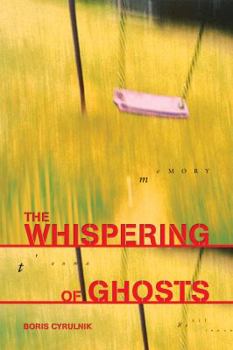Whispering of Ghosts
Select Format
Select Condition 
Book Overview
One out of every two people will experience trauma, says psychiatrist Boris Cyrulnik, and one in ten will remain a prisoner of that suffering. Why are some children permanently damaged by difficult... This description may be from another edition of this product.
Format:Hardcover
Language:English
ISBN:159051114X
ISBN13:9781590511145
Release Date:July 2005
Publisher:Other Press (NY)
Length:182 Pages
Weight:0.90 lbs.
Dimensions:0.8" x 6.4" x 9.1"
Customer Reviews
1 rating
A valuable counterpoint to America's worship of victims
Published by Thriftbooks.com User , 18 years ago
The book is mainly a series of anecdotes dealing with how people deal with traumatic experiences and move on. Many are heartrending--one that sticks in my memory is of an 8-year-old boy whose parents routinely went on vacation and left him behind, locking him out of the house, leaving him to shift for himself and share the dog's kennel. The boy felt he was even worse off after he was removed from the home and confined to an institution where no one spoke to him, away from his dog. Yet the boy grew up to be a remarkably kind and gentle person. Dr. Cyrulnik makes the excellent point that many people who have had abusive childhoods or experienced terrible events prove to be resilient. Many notable people have had such traumatic pasts. In the U.S. today we too often make the assumption that poverty, abuse, family breakup, poor schools, race prejudice, or whatever will ruin a child for life. Cyrulnik shows that much depends on the story of his life that a child builds for himself. If society treats the child's trauma as a reason for him to have a grievance against that society, the child is all too likely to see it that way too. On the other hand, if the child builds a story that gives meaning to his suffering, he is likely to do better. Society can influence that choice by how it treats traumatized children. Many of the anecdotes were presented without much in the way of context. I presume that most of them were drawn from Dr. Cyrulnik's clinical practice. The book contains numerous broad statements about children's trauma and the like, such as "In the long run, the child will adapt to this sensory impoverishment by a numbing of his perceptions." I felt that not enough evidence was given as to why Dr. Cyrulnik thought these statements were true. I would liked to have seen more discussion of the research, instead of just footnotes in the back. Has any properly controlled research been done on whether Dr. Cyrulnik's methods actually work in producing better outcomes for traumatized children or adults? What interventions are best? Overall, the book is very interesting, but the conclusions put forward seemed to me to be very preliminary and on rather shaky ground.






